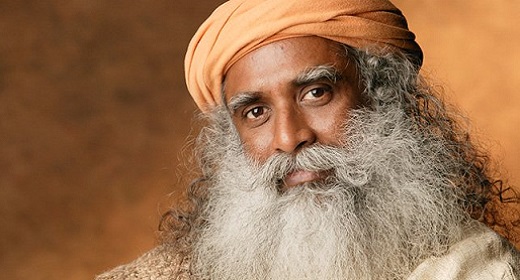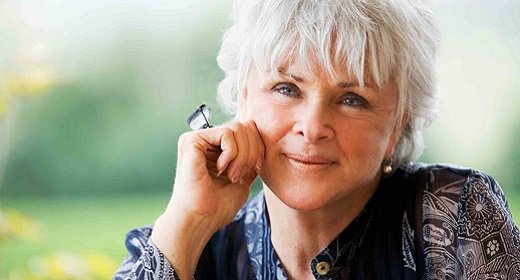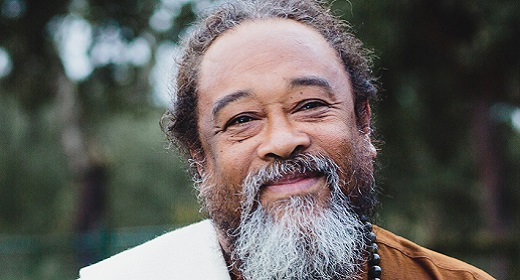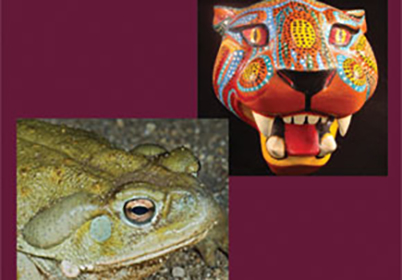by Catherine Ingram and Leonard Jacobs: The name has a certain magic about it. Some people have even suggested that it is from the name itself that the man achieves his power and mastery.
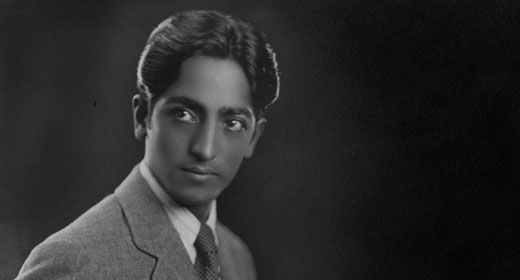
Yet for me, this magic implied a type of mysticism and had kept me from getting interested in the man. Since first hearing his name and the many adulatory comments about his teaching, had gained a definite skepticism about Krishnamurti and his message.
He had seemed to be yet another Indian “guru” who had the usual criticisms of Westerners… which was of little interest to me. So, in spite of the many encouragements to see Krishnamurti and to read his books, I had escaped the enchantment. I had maintained my distance.
Nevertheless, when the second volume of his biography arrived in our office, I thought that it was time to finally discover something about this quiet and reclusive man who for over seventy years has influenced so many thousands of people. And after reading this book, Krishnamurti: The Years Of Fulfillment by Mary Lutyens (Farrar, Straus and Giroux, New York). I realized that this man was not the usual spiritual teacher from the East; he is hardly the guru which his name seems to imply.In fact Krishnamurti is a very simple and humble man who has a brilliance and perceptiveness shared by few others.
My next step in discovering more about Krishnamurti came when staff member Catherine Ingram contacted his secretary in anticipation of his upcoming talk in New York City. Not knowing that he rarely grants personal interviews nor cares much for the media, she asked for an interview with him for East West Journal. He agreed to meet with Cathy and me at his hotel room in New York, and my curiosity became even more intense. In preparation for the meeting, I read through a number of Krishnamurti’s writings and discovered a most unusual teacher. He deals with the common aspects of human problems. The themes of his talks, many of which have been transcribed and published in book form, are: the limitations of the human experience, the constant chattering of our mind, the on going experience of fear,and the rarity of true love. These could be the topics of a clergyman, philosopher, or sage—they are also very real concerns for all sensitive human beings.
His most consistent message has been that there is no path to truth: “Truth is a pathless land. Man cannot come to it through any organization, through any creed, through any dogma, priest, or ritual, not through any philosophical knowledge or psychological technique.” And his approach to discovering truth is through the dissolution of concepts and images putting no thought between the observer and the observed. But even this technique is not his. Krishnamurti really has no technique If anything, what Krishnamurti has is a concern for the psychological or spiritual evolution of humanity. He feels that regardless of the apparent developments of the material aspects of modern society, we humans are practically the same in relationship to our psychological development as we have been for the past thirty or forty thousand years. We still experience conflicts, jealousy, suffering, loneliness, fear, and confusion; humanity’s evolution of consciousness is still in its infancy. Only through individual transformation of consciousness will we effect any substantive change in the world.
These concerns are also those of many of our readers and staff. So, with notebook in hand and questions in my mind, plus a continuing degree of skepticism, I went to his public lecture in Madison Square Garden in New York City.
On Sunday April 10, in the midst of a torrential downpour, over three thousand people turned out to hear this very simple man, seated in a plain straight-backed chair, talk about love, fear, and freedom. Without theatrics or drama, Krishnamurti managed to captivate his audience with his brilliance and peacefulness. But this was still a general and somewhat impersonal talk, apparently similar to other talks he has been giving for the past fifty years.
Two days later, Cathy and I went to Krishnamurti’s room in the Hotel Dorset for the interview. Having been warned that “he is an extremely difficult man to interview and does not tolerate small talk,” we wondered how we would manage. Yet we met a polite and shy man who seemed to have infinite patience, yet at the same time exhibited a fierceness and sense of mission. Dressed in a plain brown knit shirt and pants, this man could have been anyone’s grandfather or uncle. But his clarity and insightful comments put us on the spot many times, leaving us with the feeling that here was a truly free man who, without trying, had achieved what I feel is a type of spiritual anarchy—a deeply moral and sacred outlook completely independent of orthodox ideologies or religions.
—Leonard Jacobs
EWJ: Even though one is still suffering, is it possible to help others who are suffering?
K: Why not? Though I may be suffering and you may be suffering, why not? That’s one part of it. The other part is, is suffering to be ended through a long process of time? To be completely free does it take time, does it take evolution, is it a matter of progressive achievement? Is there such a thing as psychological evolution at all? We have evolved through millenia and we think we have reached a certain stage psychologically, and also physiologically. We have created this world, this society, with all its monstrosity and ugliness—the destruction of the environment, killing each other, perpetual wars for the last six or seven thousand years. And during this long period of time we haven’t changed, we haven’t stopped wars. So will further evolution of forty or fifty thousand years change us, when the forty thousand years before haven’t?
EWJ: But now that we have massive worldwide communications, unique in history, do you think that a transformation of consciousness will emerge?
K: Through communications? Do you really think so?
EWJ: I mean, specifically, using the media as a tool to raise consciousness. For instance, this film “Gandhi” that has just won the Academy Award is basically about peace and about Gandhi’s main message of non-violence.
K: That’s rubbish. Unless you go to the root of the matter you’re merely scratching the surface.
EWJ: But perhaps people could be inspired by scratching the surface to then try to go to the root.
K: Inspiration only lasts for a very short while. Very few people ever affect the psyche. Very few. Gandhi is totally forgotten in India.
EWJ: There was an article that said that the Indians were very impressed by the movie, but were somewhat bemused by the non-violent aspect of it.
K: That’s right. He was a very violent man. They’re trying to make a saint out of him as the only man who was helping India to be free, which isn’t true. There were hundreds. Annie Besant was one. She worked for forty years helping the country to be free. She is never mentioned. It’s all so lopsided. … So what is the question?
EWJ: The question is, if only a few people throughout history. …
K: Can they affect the consciousness of man?
EWJ: … because as you say there are many terrible wars, many terrible injustices throughout the world now; how can we change them?
K: That’s a good question. … Do you really want us to discuss all this?
EWJ: If you have time.
K: I have time, but one has to be very serious to go into all this.
EWJ: That’s our personal work, as well as our professional concern—to influence society in any way we can.
K: I don’t believe in influence.
EWJ: What is your motivation then? What motivates you?
K: Nothing.
EWJ: But you ‘ve been carrying on all these years.
K: It’s a long story. Suppose that you are enlightened and you’re asking how will you affect the rest of humanity. There have been people like the Buddha who have not affected human consciousness. The Buddha never mentioned God, but people have created him into one and worshipped him. Has any person, however illumined affected mankind? It’s very doubtful. I’m not being pessimistic – I’m just looking at facts. When you look at facts you can’t be optimistic or pessimistic,right?
Put the question the other way — is human consciousness all one, or separate? Do you understand? Is it individual consciousness, or consciousness of the entire humanity? My consciousness, or X consciousness, what is that? Or, what is the content of that consciousness — belief, faith? Ideologies? Conclusions? Concepts? Fear? Suffering, loneliness, anxiety? And constant struggle from morning to night till he dies, right? That’s a fact. But the rest of humanity’s consciousness whether they live in a small village or in one of these tall buildings, is similar to everybody else’s. We all share the same consciousness—it can never be individual. The brain is not my brain. It has evolved through several millenia, but we have said, “this is my particular brain, my particular consciousness, my country, my God,” and so on. So if one person stepped out of this way of thinking has it any value to the others, to the rest of mankind?
EWJ: It appears the Buddha did. He left a technique to practice awareness, and his influence has been very great.
K: He couldn’t have left a technique. After his death his disciples probably gathered together and put up a scheme. Buddha couldn’t possibly have said “Seek refuge in me.” The systems came after he died. We think because he had attained some illumination, had suffered and gone through starvation, that we must also go through that in order to achieve what he achieved. And he might say, “Well, that’s all childish stuff. It has nothing to do with enlightenment.”Can one person who is illumined— to put it in modern terms, free from all conditioning—affect the consciousness of all the rest of mankind? What do you think, impersonally, objectively, as you look at the world? Two thousand years of Christian propaganda, “Jesus is the saviour,” and the churches have burned people, tortured people, had hundreds of years of war in Europe. Christians have been one of the greatest killers in the world. I’m not against nor for—I’m just pointing out that this is the result of two thousand years of “peace on earth.” It has no meaning, whether Jesus existed or not. So has all this propaganda, this programming of the brain, after two thousand years of repetition of the Mass day after day, affected man at all? Christ said, “Don’t hate your enemy, love your enemy.” And everything we do is contrary to that. We don’t care. So, what will affect man? What will change man who has been programmed, literally programmed like a computer, to worship Jesus, to worship the Buddha, to worship other gods?
Can the mind free itself from all programs? Is it possible to be totally free of taking in information—what the newspapers say, what the magazines say, what the priests, psychologists, and professors say? Education, propaganda on the television, the evangelists in America—that peculiar breed—are all telling me what to think and, increasingly, what to do. If I have a little quarrel with my wife I go to the specialists—the psychologists, psychotherapists. Dr. Spock or some professor tells me how to raise my children. I’m becoming a slave to these specialists, my mind is conditioned and I’m limited — conditioning implies limitation—I’m in battle with everybody else for the rest of my days. And there’s the future of man.
EWJ: Then what’s the point of it all?
K: Nothing! It has no meaning! What is the point of the Pope going toPoland, or all over South America? Is it a vast entertainment? Sustaining the faith? He says you must sustain faith, which means believe in Christ—which means do what we tell you. It’s all so absurd! So what will you do, with the world pressing you all the time— they won’t let you alone. I say, sorry, I won’t accept any of it. Whether it’s the Buddha, Christ, the Pope, Mr. Reagan telling me what to do.. .sorry, I won’t. This means we have to be extraordinarily capable of standing alone. And nobody wants to do that.
EWJ: Do you think there is a truth?
K: Yes, but there is not my truth, your truth. And it has no path. There’s no Christian path, Hindu path, Buddhist path, your path, my path. One must be free of all paths to find it. The Hindus have been very clever at this. They said there is the path of knowledge, the path of action, the path through devotion—this suits everybody.
EWJ: So you say to stand alone we find our truth.
K: No. The word alone means all one. But people say, “I can’t do it alone, so please help me to put my house in order,” and invent theguru—not a particular guru but the whole idea of gurus. The world of so-called religion, whether it is the religion of Hindus, Buddhists, Jews, Catholics, the whole structure of religious ceremonies, is put together by thought, is it not? The Mass was invented by man. They may say it came directly from heaven but that seems rather absurd— it’s been invented by man. The ancient Egyptians had their ceremonies to shape man. It isn’t something new, the worship of symbols and figures. The guru, the mantra, various forms of yoga which have been brought over to this unfortunate country, are all authorities leading you to meditate and all. We have done it—we have tried Jesus, we have tried every form of person and idea, theory, system. They have not worked. So it’s up to me to put my house in order—I cannot depend on anyone else. If you reject the church, the whole religious structure of the world, any kind of spiritual authority, you are free of it.
EWJ: Haven’t these people and systems been inspiration to some?
K: What is inspiration? To do something better—you answer it yourself.
EWJ: Isn’t it to add to the potential of each human being?
K: Yes, but if I am asleep…
EWJ: Then it is to wake up.
K: Yes. And all the time I want entertainment to keep me awake. Man wants to be entertained, he wants to escape from himself at any price. This is a fact. The church has done it, and now sports—football, cricket, and so on—is a vast entertainment. I’m bored, I’m harassed, I’m weary, so I come to you and say, “inspire me.” For the moment you stimulate me. You act as a drug for the moment so I depend on you.
EWJ: You speak of freedom from something—from religion, from politics…
K: Freedom is in itself without any motive, not from or for, just freedom. For instance, I am not a Hindu – I am free from it. But that’s not freedom; I am free from a particular form of prison but we create other prisons as we go along. The point is, suppose you have understood and have rejected, negated, all this and you want to help me. There is something unethical, if I may use the word, in trying to help me, right? Do you understand?
EWJ: I don’t understand why.
K: You are trying to help me; that’s your path. But why do I want to be helped?
EWJ: Because you might be suffering.
K: Suppose I’ve lost my son, my wife has left me, I can’t get the job I want. How are you going to help me? Why do I seek help? Why do I have this craving to go to somebody to ask help?
EWJ: Sometimes it is helpful to meet someone who has gone through experiences of suffering. They are an example.
K: We are doing that now—and how far will you go with it?
EWJ: Perhaps not the whole way, but it can be a comfort.
K: Then what’s the point of it? You have gone so far and stopped.What’s the point? So, then I become an example— that’s the worst thing! There have been many examples of all kinds of idiocies: so-called “heroes” who have killed a thousand people in war, and saints who are half demented. Why then do you want help, to follow somebody, look up to somebody, why? When there is some kind of disease in me I go to the doctor; if I don’t know the direction I seek help from a police officer; the postman is helping when he brings a letter. In the physiological world help is necessary; other wise we couldn’t exist, right? But I’m asking myself, psychologically, inwardly, will anybody help me? Man has suffered through time beyond measure, for millenia. What will help him to end that suffering? He goes on killing, he goes on murdering, he has ambition in everything—which is another form of killing—and what will stop him? Not Gandhi—his nonviolence is really a form of violence. Non-violence is an idea,right? When man is violent and you give him a fact, then fact is violence and non-fact is non-violence. And you are dealing only with non-fact all the time. Why don’t we deal with the fact, which is violence? Why do you put that picture of non-violence in front of me?I say deal with what is here.
I’ve had discussions with Gandhi’s disciples, with his followers,endlessly about this matter. I said to them often, “We have had this war between India and Pakistan and you talked about non-violence. Were any of you conscientious objectors? Did any of you go to prison for peace?” Not one of them. It meant absolutely nothing. So what’s the point of non violence? It’s a jargon—an escape. I know, if I am violent, how to deal with this. But you are all the time dangling infront of me this non violence, which is not real.
EWJ: Do you think we will just keep going on like – warring among ourselves for all of history?
K: You’re asking the same question in different words—what’s the future of man. Unless we radically change, the future is what we are now. It’s a serious fact. And nobody wants to change radically. They change a little bit here, a little there. If you want peace, you live peacefully. But nobody wants to live peacefully—neither the Pope, nor the prime minister, nor anybody. So they’re keeping up the wars. I’ve talked to a great many politicians in my life, a great many spiritual leaders, to gurus who come to see me—I don’t know why—they never talked about ending conflict, which means finding out the cause of conflict. Never.
Let’s say nationalism is one of the causes. They never talked aboutit. If the Pope said tonight that the church will excommunicate anybody who joins the army to do organized killing then tomorrow he wouldn’t exist. They would throw him out. So he won’t say, “Let’stalk about peace.”
I’m not cynical, I’m just looking at facts. So, what will change man? Apparently nothing from outside—no church, no threats, no wars, nothing from outside. Change implies a great deal of inquiry, agreat deal of search. Someone hasn’t the time so he says, “Tell me all about it quickly.” But one must give one’s life to this, not just play around with it. The monks think they have given their life but they have given their life to an idea, to a symbol, to somebody called Christ. The Hindus have their sannyasins, the Buddhists their bhikkus—it’s the same phenomena.
EWJ: It appears that we are at a unique time in history.
K: Yes, but the crisis is not in the world out there. Rather, it isinside us, in our consciousness. Which means that man has to change.
EWJ: Has your teaching and your writing made a change?
K: With some, perhaps. I’m not looking to see if somebody’s changed or not. It’s like this: you give food to me and if I’m hungry I’ll take it. And if I’m not, I look at it, smell it, say “it’s very nice,” and then wander off. Very few people are hungry for this kind of stuff. Buddha is supposed to have talked for forty years, and there were only two disciples who understood—Mogallana and Sariputtra— and they died before he did. There is the whole tragedy of existence.
EWJ: Do you feel that your teaching has made a deep impression?
K: Some have given up their jobs, have said, “We’ll come to your schools.” They are doing it because they are schools—not monasteries, not ashrams, but schools—where you get a degree course.
EWJ: So you feel that education is a place to really effect a change?
K: If teachers were concerned, if education all over the world was concerned, to bring about a new generation they could do it. But they are not concerned. They want to stuff the children with mathematics, biology, chemistry, to make them become good engineers. Society wants good engineers—there’s money in it. Educators have enormous responsibility because they hold the future. More than the parents. Educators must be concerned with the holistic view of life. I’ve talked about it so much. We’ve got a school in California, a school in England, and five schools in India, and I’ve spent a great deal of time in all of them. But the parents want their children to be like themselves—have a good job, get married, settle down. Society around them wants that. So it’s a tremendous battle with the parents, with the teachers, with the society. It’s a sick world.
EWJ: It seems as though there’s as much physical sickness, like cancer, as there is mental sickness.
K: They’re related to each other.
EWJ: When you meet someone who is sick physically what is your approach ? Do you heal?
K: Yes, but please, I want to make this quite clear. Healing is not my profession, not my work. Let me rather say, if someone cannot be cured he’s going to die. And death apparently is a horror to everybody. Whether diseased or healthy, death is something to be abominated. But death and life go together. You can’t say, “I’ll keep death out there and life here.”What matters is how you live before death, not after. Living is more important than dying. Living is . . .ah, it’s too complex…
EWJ: Do you believe in rebirth?
K: First of all, I don’t believe in anything. Secondly, what is it that is going to be reborn? Say I have been suffering for ten years and I die. Now will I in my next life go on from where I left off? Is there individuality at all? Is there the ego—my ego, your ego, a spiritual essence, the atman? The highest principle?
EWJ: Perhaps it’s just a process.
K: What is that? It’s a process of thought. There is nothing sacred about thought, nor about the things that thought has created in the churches of the world. They worship it but it’s not sacred. There is something absolutely sacred but you can’t pick it up casually, you can’t just believe. Do you understand? Men have searched for this indifferent ways and never found it, they have given their lives to it.It can’t be found in an afternoon conversation or reading a book, or going to some fanciful meditation. If you don’t find it what’s the point of all this? One has to work on this for years to find out. It isn’t just a game that you play. But people haven’t the time so they worship the one who has something. Or they kill him. Both are the same— whether they worship or kill, both are exactly the same.
EWJ: Isn’t there some possibility of transmission between individuals?
K: Now you are with somebody who is a little peaceful and who doesn’t want a thing from you, and you feel quiet. But you have what? You have taken a drug for the time being and the moment you leave here it will all go. It’s so obvious.
EWJ: But if we are climbing some mountain and we’ve come to see you because it seems that you are a few steps ahead..
K: I don’t believe in climbing. There is no climbing, no “I am this, I have become that.” There is only this. Change this, that’s all.
EWJ: Why do you teach?
K: Why does a flower bloom?


